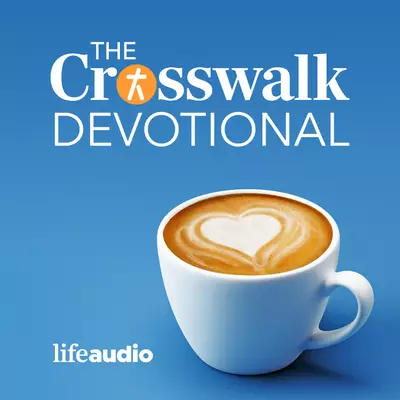Loving Those Who Are Hard to Love
In this episode of The Crosswalk Devotional, we explore the challenging yet transformative call to love those who are hard to love. Jesus commands us to love not just our friends but also our enemies, which can feel daunting. We’ll discuss practical ways to embody Christ-like love, even when faced with difficult relationships. Together, we’ll examine scriptural insights, the power of forgiveness, and the importance of seeing others through God’s eyes. Join us as we uncover how loving the unlovable can lead to profound spiritual growth and deeper connections with God.
Join the Conversation: We want to hear from you! How have you navigated relationships with those who challenge your capacity to love? Share your stories and insights with us on social media @LifeaudioNetwork or via email. What strategies have helped you cultivate love and understanding in tough situations?
🎙 🎉 SUBSCRIBE to our NEW SHOW - YOUR NIGHTLY PRAYER:
https://www.lifeaudio.com/your-nightly-prayer/
Full Transcript Below:
19 We love because he first loved us. 20 Whoever claims to love God yet hates a brother or sister is a liar. For whoever does not love their brother and sister, whom they have seen, cannot love God, whom they have not seen. 21 And he has given us this command: Anyone who loves God must also love their brother and sister. 1 John 4:19-21.
The holidays can place us at the table with some of the people we find hardest to love. Maybe we fear our mother-in-law will spend Christmas dinner criticizing our parenting, career choices, or cooking. Perhaps we’ll spend time with a sibling who hurt us deeply and with whom we experience significant, ongoing conflict. Or, we might feel stuck in a lonely marriage with a spouse who seems oblivious to our pain.
We live in a relationally messy world, infiltrated by brokenness and sin. Sometimes it can feel confusing to know how to guard our hearts and love others well. For years, I assumed this meant suppressing my pain when others wounded me, but that created codependent behaviors and increased dysfunction. Discouraged and frustrated, I began to emotionally withdraw behind a self-protecting façade.
Perhaps you can relate. How can we demonstrate the love of Christ to the most the unloving people in our lives? While this is an area in which I’m still learning and growing, in my wrestling with God over this question, He’s taught me a few things.
Verse 19 reminds me that I cannot give what I don’t possess. In other words, the more I receive God’s love, in my most wounded places, the more it flows from me. Consider Jesus’ behavior on the night before His death. He humbly and tenderly washed His disciples’ feet, knowing they’d abandon Him and that Judas would betray Him.
Notice what Scripture reveals in John 13:3-4: “Jesus knew that the Father had put all things under his power, and that he had come from God and was returning to God; 4 so he got up from the meal, took off his outer clothing, and wrapped a towel around his waist” (NIV, emphasis mine).
Jesus loved His disciples from a place of wholeness. He lived secure in His identity, remained focused on His mission, and confident of His eternal destination. He didn’t allow other people to set His agenda, hijack His emotions, or affect how He viewed Himself.
We see this in how He related to the masses, as well. In John 2:23-25, we read:
Now while he was in Jerusalem at the Passover Festival, many people saw the signs he was performing and believed in his name. 24 But Jesus would not entrust himself to them, for he knew all people. 25 He did not need any testimony about mankind, for he knew what was in each person (NIV).
I’m struck by the phrase: He didn’t entrust Himself to them. Jesus knew the very ones who praised Him on Palm Sunday would chant for His crucifixion come Good Friday. Yet, still He chose the cross, praying, “Father, forgive them, for they do not know what they are doing” (John 23:24, NIV).
He understood the pervasive effects of sin and therefore could separate the individual from their behavior. I began to experience healing when I started to do the same. I learned to shift my anger off the person who hurt me and onto the one responsible for our world’s darkness.
I hated the devil for the damage he inflicted rather than a fellow victim. This helped shift my anger for the person to compassion, which in turn stirred me to prayer. As I stepped more fully into God’s illuminating light, I came to realize the bitterness that once consumed me was merely a def

Our goal with this podcast, is to encourage and challenge you, to help you worship and help you think, to give you practical application of Scripture as well as positive shared testimonies and honest struggles.
